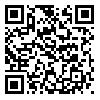Volume 2, Issue 3 And 4 (8-2010)
فصلنامه فناوری اطلاعات 2010, 2(3 And 4): 91-109 |
Back to browse issues page
Download citation:
BibTeX | RIS | EndNote | Medlars | ProCite | Reference Manager | RefWorks
Send citation to:



BibTeX | RIS | EndNote | Medlars | ProCite | Reference Manager | RefWorks
Send citation to:
Saberi, Montazer G. Personalized E-learning Environment Using Fuzzy Recommender System base on Combination of Learning Style and Cognitive Trait. فصلنامه فناوری اطلاعات. 2010; 2 (3 and 4) :91-109
URL: http://jor.iranaict.ir/article-1-266-en.html
URL: http://jor.iranaict.ir/article-1-266-en.html
Department of Engineering, Tarbiat Modares University
Abstract: (13984 Views)
Personalization needs to identify the learners’ preferences and their characteristics as an important part in any e-learning environment which without identify learners’ mental characteristics and their learning approaches, personalization cannot be possible. Whatever this identifying process has been done more completely and more accurately, the learner model that based on it will be more reliable. Using the combination and relation of effective theories in learning approaches detection such as learning style and cognitive trait, have been used in this research. Also for reducing ambiguity in learners’ opinions and their feedbacks, have been used fuzzy logic. This study was conducted during one semester on some e-learning students in engineering field based on fuzzy recommender system in two phases. This recommender is part of Intelligent Tutoring System as prepared some recommendations based on learning style in first phase and on half of courses and in second phase and on remaining courses, prepared recommendations based on combination of two mentioneed theories. Learners’ ability have been monitored and evaluated based on fuzzy item response theory in all steps. Measures of Intelligent Tutoring System have been optimized after this combination that clarifies the presentation of accurate recommendations in appropriate time. The time of effective learning and amount of referee to tutor have decreased, learner’s and tutor’s view to e-learning that define such as learners’ success rate and the learner’s satisfaction have improved increasingly.
Keywords: e-learning, personalization, Intelligent Tutoring System(ITS), Learning Style, Cognitive Trait, Fuzzy Recommender System, Fuzzy Item Response Theory (FIRT)
Type of Study: Research |
Subject:
ICT
Received: 2013/08/2 | Accepted: 2013/08/2 | Published: 2013/08/2
Received: 2013/08/2 | Accepted: 2013/08/2 | Published: 2013/08/2
Send email to the article author



